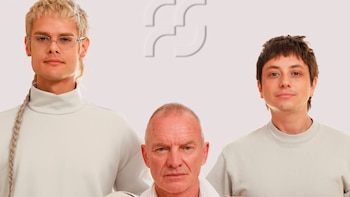The International Paralympic Committee (IPC) suspended United Arab Emirates powerlifter Haifa Alnaqbi for six months for committing an anti-doping violation.
The athlete who competes in the women’s up to 73kg class returned an adverse analytical finding for Clomifene and its metabolite hydroxyclomifene as well as tamoxifen metabolite 3-hydroxy-4-methoxy-tamoxifen in a urine sample provided on 11 September 2018 following competition at the 2018 World Para Powerlifting Asia-Oceania Open Championships in Kitakyushu, Japan.
This substance is included on the World Anti-Doping Agency (WADA) 2018 Prohibited List under the category S4. Hormone and Metabolic Modulators.
As a result of her violation, Alnaqbi was ineligible for competition for six months from 11 September 2018, the date of the test, to 10 March 2019. All her results obtained from 11 September 2018 and onwards will be disqualified including forfeiture of any medals, points, records and prizes. This includes the bronze medal she won at the 2018 Asian Para Games in Jakarta, Indonesia, and the bronze medals (open and regional) she won at the Asia-Oceania Championships.
Her medal from Kitakyushu in the open category will now go to Ireland’s Britney Arendse, while the regional bronze medal will go to South Korea’s Eun Mi Yang.
The IPC would like to remind all athletes the principle of strict liability applies to anti-doping matters and that any athletes who need to take a prohibited substance for medical reasons should seek a Therapeutic Use Exemption.
Each athlete is strictly liable for the substances found in his or her sample, and that an anti-doping rule violation occurs whenever a prohibited substance (or its metabolites or markers) is found in his or her bodily specimen, whether or not the athlete intentionally or unintentionally used a prohibited substance or was negligent or otherwise at fault.
As a signatory of the World Anti-Doping Code (WADC), the IPC remains committed to a doping-free sporting environment at all levels. The IPC, together with the International Federations and the National Paralympic Committees, established the IPC Anti-Doping Code to prevent doping in sport for Paralympic athletes, in the spirit of fair play. The IPC Anti-Doping Code is in conformity with the general principles of the WADC.
25 Years at #1: Your best source of news about the Olympics is www.aroundtherings.com, for subscribers only
Últimas Noticias
Brigitte Henriques: “The important thing is that the women who are elected should be chosen for their ability, not because we are looking for modernization in terms of gender”
“When I was a girl I couldn’t find a club to play soccer in because most of them didn’t work with women,” Henriques tells Around the Rings during an in-depth interview in Crete, Greece.

The Hula Report: Winds of Change for ANOC in Crete
New leaders coming for peak Olympic group. Whether other candidates emerge in the months ahead, a contested election for the ANOC presidency will be a first for the organization.

Gilles Gilbert Gresenguet, presidential candidate for AFCNO: “We must take advantage of Paris 2024 to bring the Olympic Games back to French”
The elections take place November 18, and Abakar Djermah Aumi, president of the Chad Olympic Committee, is also aiming to win them.

USOPC announces 613-member 2020 U.S. Olympic Team

Roger Federer pulls out of Tokyo Olympics: "I am greatly disappointed"
(ATR) Federer cites "a setback with my knee" for the decision.



